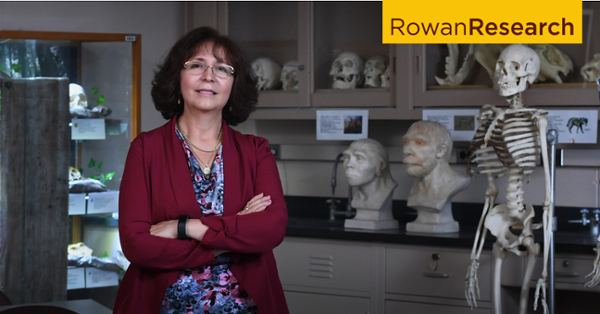Gaining understanding by studying ancient human remains
Gaining understanding by studying ancient human remains

Maria Rosado studies ancient human remains.
Professor of anthropology in the Ric Edelman College of Communication, Humanities & Social Sciences, Rosado focuses much of her research on analyzing remains at the Museo Arqueológico de La Serena in Chile. The facility has more than 1,500 skeletal remains of Native South Americans who walked the Earth 500 to 3,000 years ago.
Maria Rosado, Ph.D.
AnthropologistAreas of expertise: Bioarchaeology of Native South Americans, forensic anthropology, paleopathology
More information
Anthropological research has important implications for the medical community and in understanding cultures. Rosado has studied patterns of arthritis, dental disease, trauma and other conditions, presenting her research internationally.
“A lot of native groups from the past are still virtually unknown, and we can learn from their experiences,” said Rosado. “How did they deal with a tooth infection, for example? Someone had to figure out a medical way of treating those because people lived with them.
“It tells us a lot about how they cared for each other, how they participated in society and the history of medicine.”
Since 2000, Rosado has taken nearly 20 groups of students on research trips to Chile, where they conduct research and participate in archeological excavations. Students have presented their findings at conferences and symposia around the globe.
Recipient of the Lindback Distinguished Teaching Award, Rowan’s highest teaching honor, Rosado teaches students about the conservation of human remains and how to study them ethically.
“We have to be aware of the ethics and work with integrity, with a lot of thought to how we handle them,” she said. “In their proper place in science, the remains have a role for us in understanding our roots.”
Rosado co-founded the Museum of Anthropology at Rowan University. She also co-teaches the popular Forensic Anthropology course, known as Rowan CSI. The class requires students to excavate a replica skeleton to determine its age, sex, ethnicity and cause of death.
Rowan University researchers are passionate about what they do. Find more at Meet Our Researchers.